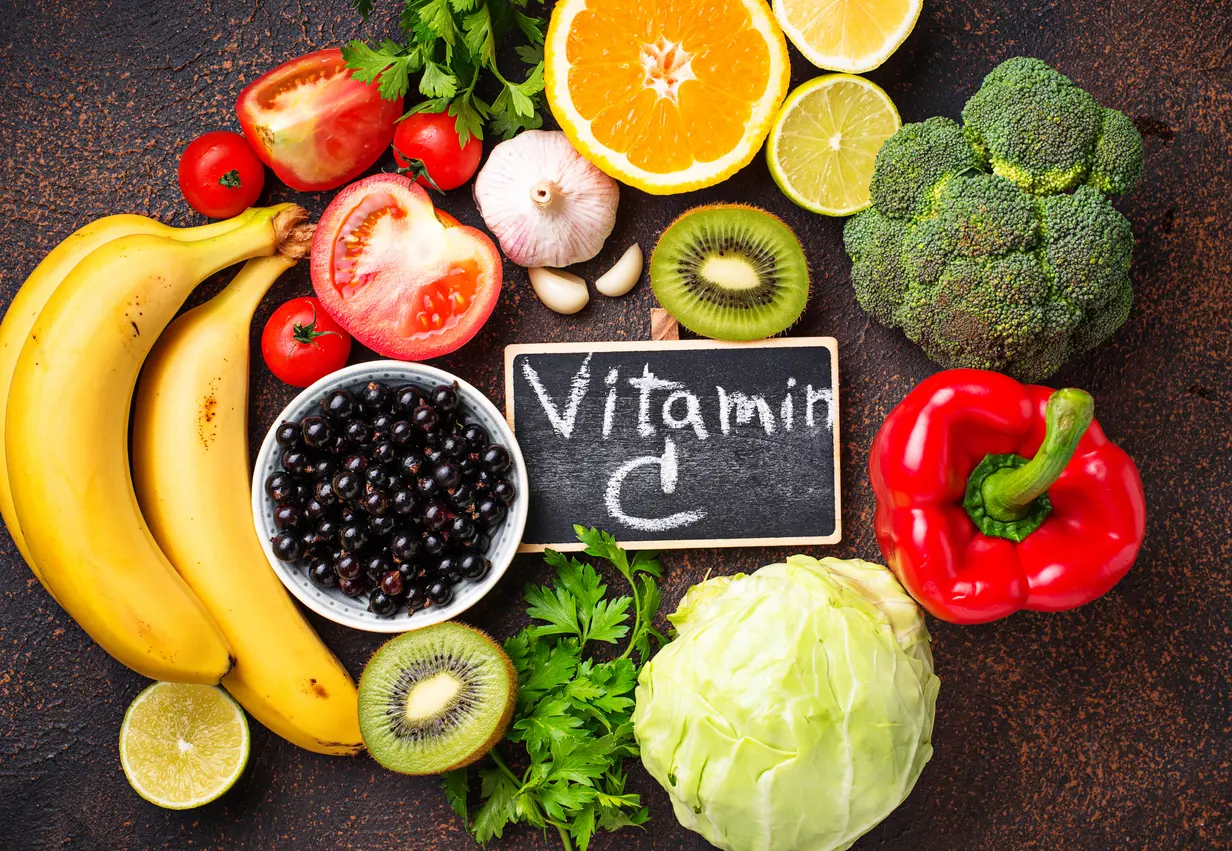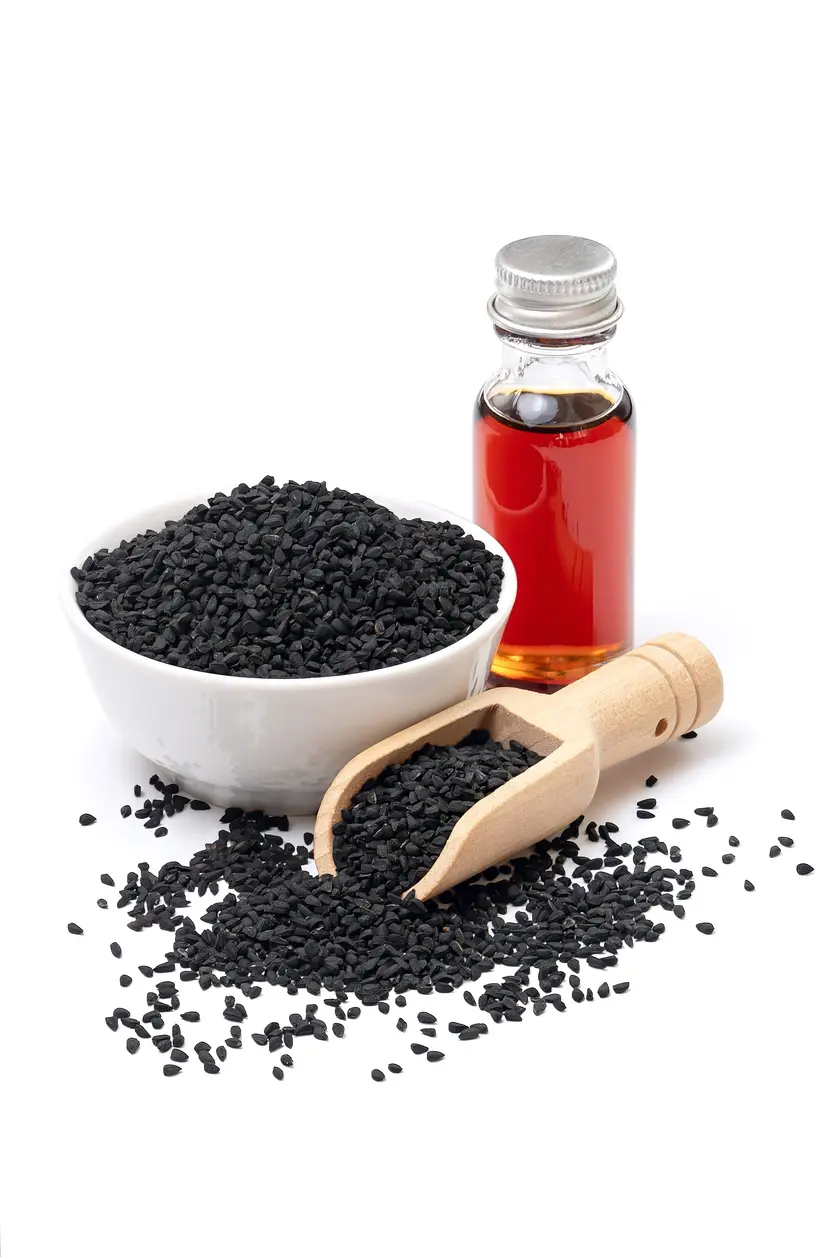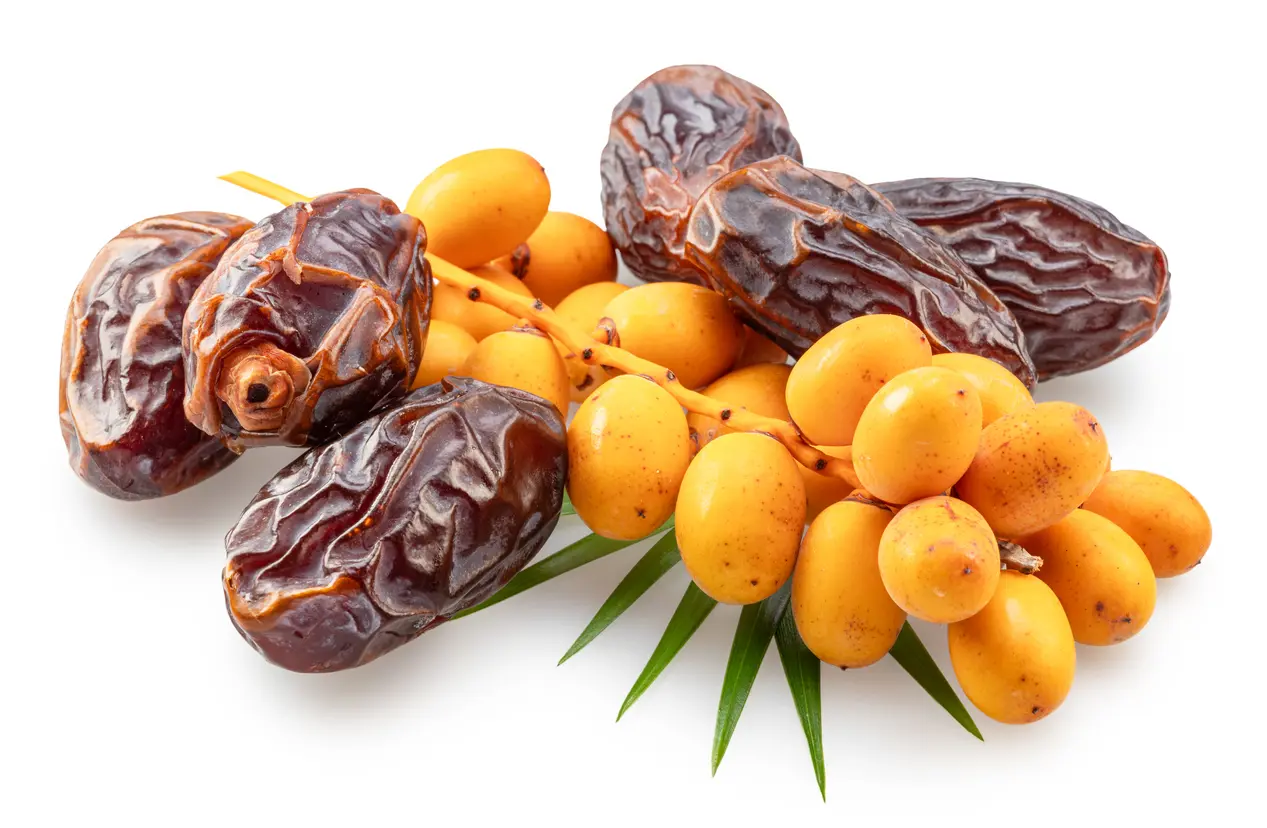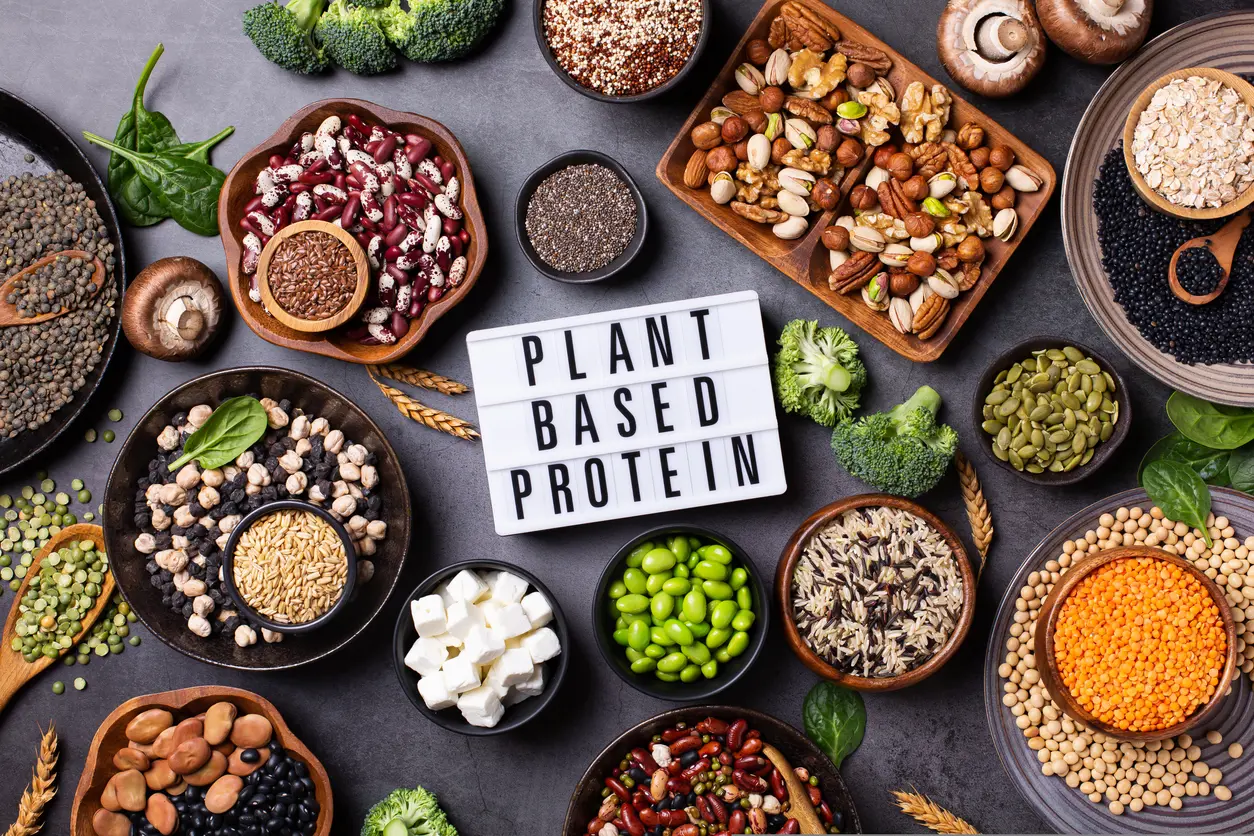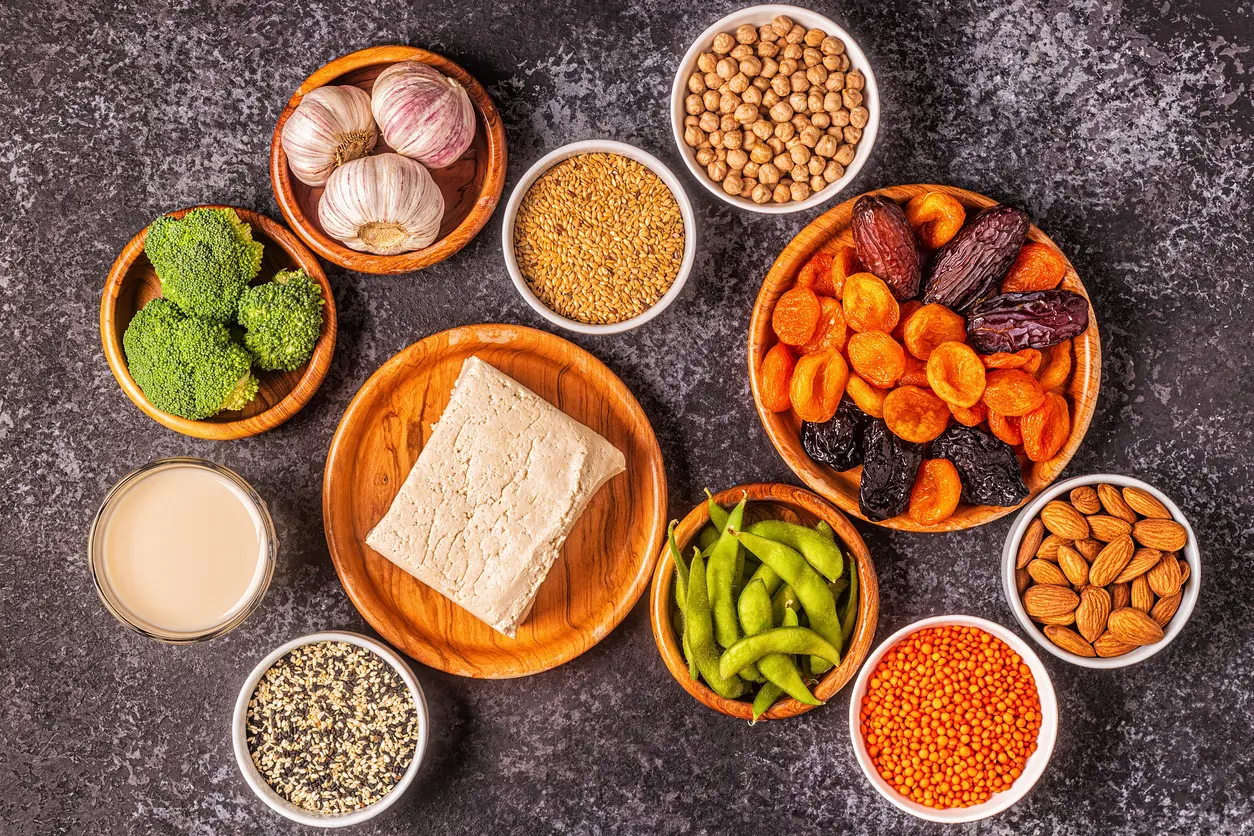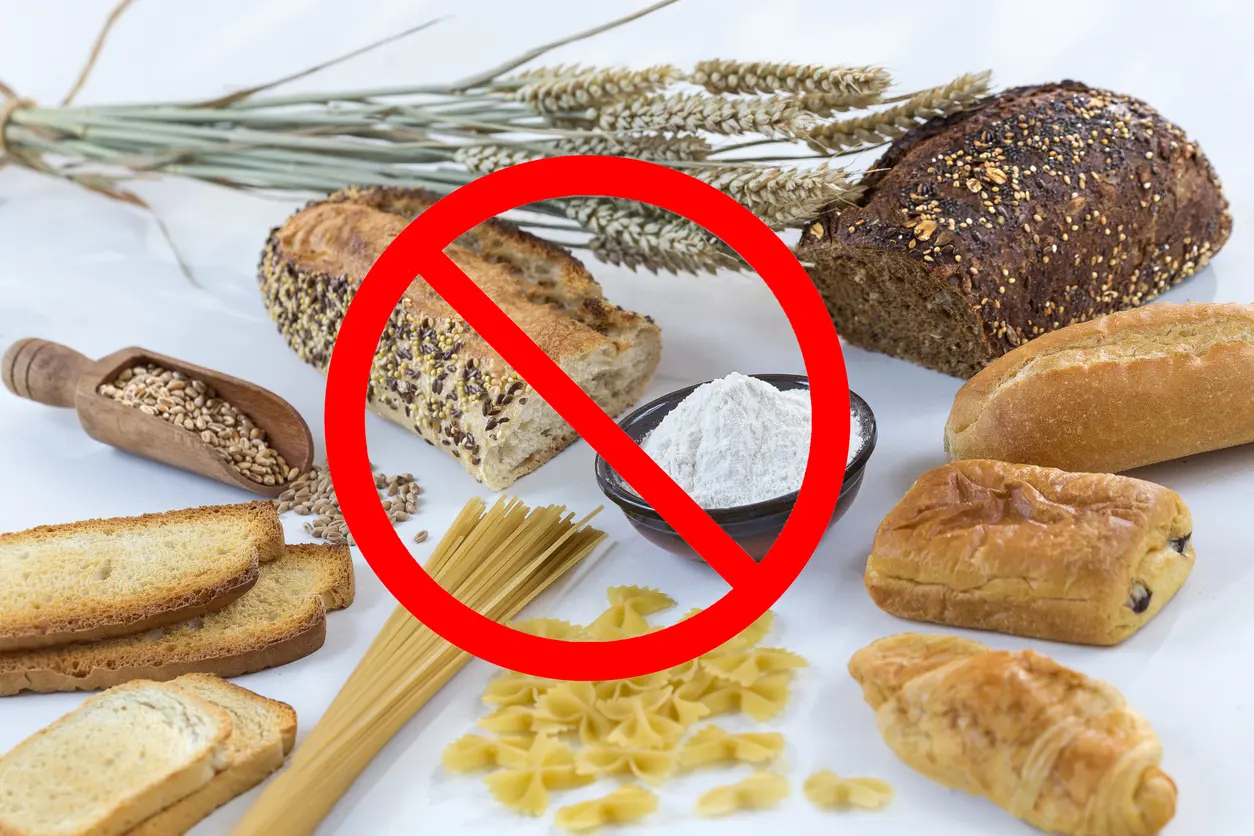Chia Seeds: Nutrition and Health Benefits
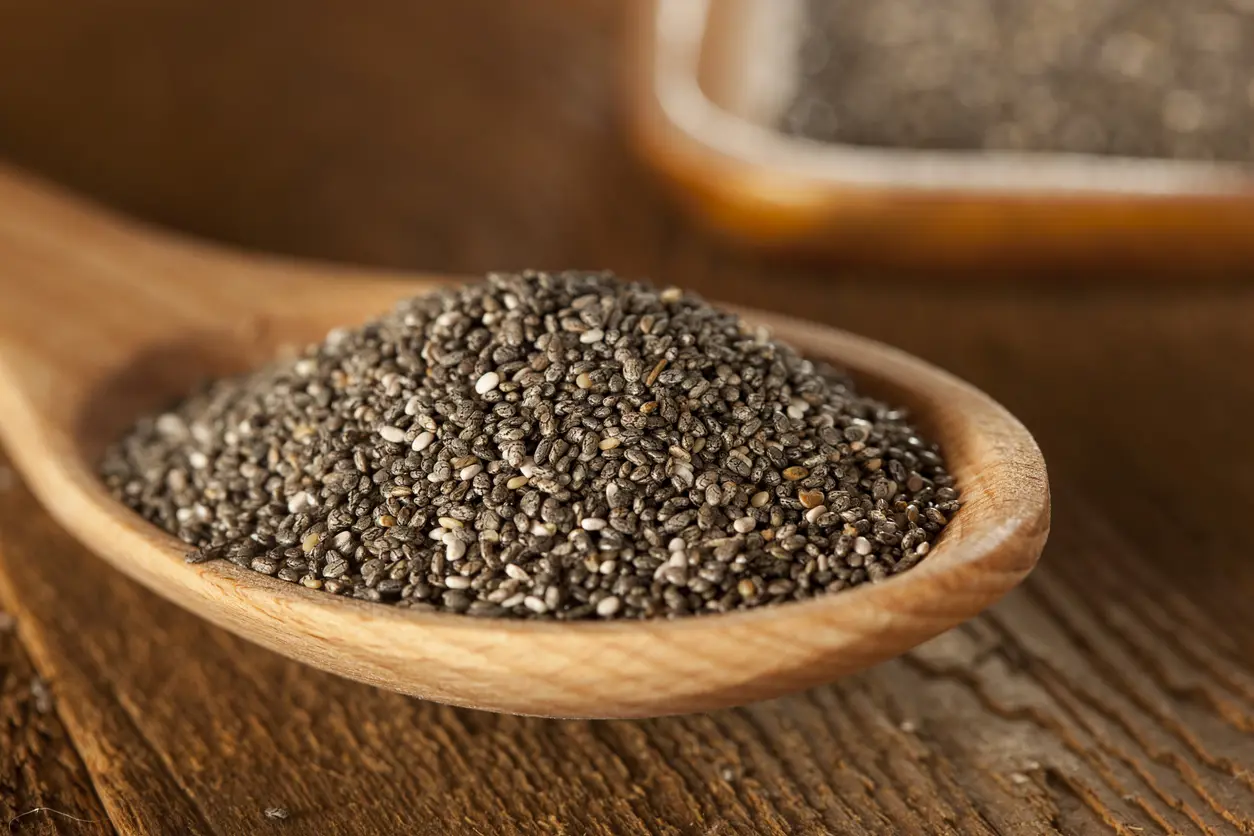
Chia seeds (Salvia hispanica) may be tiny, but they pack a powerful nutritional punch. [1] Khalid W, Aziz A, Rahim MA, et al. Chia seeds (Salvia hispanica L.): A therapeutic weapon in metabolic disorders. Food Sci Nutr. 2022;11(1):3-16. Originally cultivated by the Aztecs and Mayans, these seeds have seen a surge in popularity thanks to their high fiber content, omega-3 fatty acids, and plant-based protein. [2] Health Benefits of Chia Seeds. WebMD. Published May 24, 2024. , [3] Chia Seeds Nutrition Facts, Benefits, and Downsides. Healthline. Published November 1, 2024; Adda Bjarnadottir, MS RDN (ICE). They can be white, black, or brown in color and are shaped like smooth and shiny ovals. [3] Chia Seeds Nutrition Facts, Benefits, and Downsides. Healthline. Published November 1, 2024; Adda Bjarnadottir, MS RDN (ICE).
Often praised as a modern superfood, chia seeds offer a wide range of health benefits and are easy to incorporate into your daily meals, snacks, and drinks. In this article, we’ll explore what makes chia seeds so nutritious, how they can support your health, and what to keep in mind before adding them to your routine.
Chia Seeds Nutrition Profile
Chia seeds, also known as Salba chia or Mexican chia, are rich in essential nutrients and offer an impressive balance of macronutrients and micronutrients. Here’s what you get in a typical 28-gram (1 oz) serving. [2] Health Benefits of Chia Seeds. WebMD. Published May 24, 2024.
| Nutrient | Amount |
|---|---|
| Calories | 138 |
| Fiber | 11 gm |
| Protein | 4.7 gm |
| Fat | 9 gm (5 gm Omega-3 ALA) |
| Carbohydrates | 2 gm |
| Calcium | 179 mg (13% DV) |
| Magnesium | 95 mg (23% DV) |
| Phosphorus | 244 mg (20% DV) |
| Manganese | 0.6 mg (30% DV) |
| Zinc | 1.3 mg (12 %DV) |
Chia seeds are naturally gluten-free and provide a complete plant-based protein source, making them a great option for many different dietary preferences and lifestyles. [4] Melo D, Machado TB, Oliveira MBPP. Chia seeds: an ancient grain trending in modern human diets. Food Funct. 2019;10(6):3068-3089. They are an edible part of a flowering mint plant and have traditionally been used in functional medicine in ancient times, as well as for dietary purposes. [2] Health Benefits of Chia Seeds. WebMD. Published May 24, 2024. Thanks to their surge in popularity and high demand worldwide, they are now grown on multiple continents. [2] Health Benefits of Chia Seeds. WebMD. Published May 24, 2024.
Top Health Benefits of Chia Seeds
Supports Digestive Health
Chia seeds are packed with both soluble and insoluble fiber. The majority of the fiber is insoluble fiber, which adds bulk to stool and helps prevent constipation. The smaller amount of soluble fiber forms a gel that supports healthy digestion and feeds good gut bacteria.
Together, they help keep your digestive system regular and balanced. [3] Chia Seeds Nutrition Facts, Benefits, and Downsides. Healthline. Published November 1, 2024; Adda Bjarnadottir, MS RDN (ICE). A single 2-tablespoon serving of chia seeds contains 35% of an adult’s daily fiber needs, making them an efficient way to boost your overall fiber intake.
Heart Health
Thanks to their omega-3 fatty acid content (60% of their fat is made up of ALA, or alpha-linolenic acid), chia seeds may help reduce inflammation and support healthy cholesterol levels. [4] Melo D, Machado TB, Oliveira MBPP. Chia seeds: an ancient grain trending in modern human diets. Food Funct. 2019;10(6):3068-3089. This is especially important as many prepared, processed, and snack foods contain higher levels of omega-6 fatty acids and little to no omega-3.
A healthy diet includes a low ratio of both types of fatty acids, which may decrease the risk of developing certain chronic diseases and cancer. [2] Health Benefits of Chia Seeds. WebMD. Published May 24, 2024. As a bonus, these high levels of ALA may also improve the hydration and appearance of the skin. [2] Health Benefits of Chia Seeds. WebMD. Published May 24, 2024.
Stabilizes Blood Sugar
The fiber and healthy fats in chia seeds slow down digestion and reduce blood sugar spikes after meals. This may benefit people with insulin resistance or type 2 diabetes. A few clinical trials have shown promising results for products made with chia seeds or using sprouted chia seeds, but more research is needed to figure out the type of product and amount that is most effective. [3] Chia Seeds Nutrition Facts, Benefits, and Downsides. Healthline. Published November 1, 2024; Adda Bjarnadottir, MS RDN (ICE).
Aids in Weight Management
When soaked, chia seeds expand up to 12 times their weight, which can help you feel full for a longer period of time. [1] Khalid W, Aziz A, Rahim MA, et al. Chia seeds (Salvia hispanica L.): A therapeutic weapon in metabolic disorders. Food Sci Nutr. 2022;11(1):3-16. This, along with their high fiber content, may help reduce overall calorie intake when eaten as part of a balanced diet.
Bone Health Support
Chia seeds provide calcium, magnesium, and phosphorus - three key minerals that contribute to bone strength. As a bonus for plant based eaters, a 2-tablespoon serving boasts 13% of the recommended daily allowance (RDA) for calcium, beating out dairy products in a gram to gram comparison. [2] Health Benefits of Chia Seeds. WebMD. Published May 24, 2024.
Rich in Antioxidants
Chia seeds contain plant compounds that help fight oxidative stress, which can play a role in aging and chronic disease.
They are anti-inflammatory powerhouses, which can help your body fight the free radicals that cause stress and damage at the cellular level. [2] Health Benefits of Chia Seeds. WebMD. Published May 24, 2024. The most well known antioxidants include chlorogenic acid, quercetin, kaempferol, and caffeic acid. [2] Health Benefits of Chia Seeds. WebMD. Published May 24, 2024. , [4] Melo D, Machado TB, Oliveira MBPP. Chia seeds: an ancient grain trending in modern human diets. Food Funct. 2019;10(6):3068-3089.
Plant-Based Protein Source
With nearly 5 grams of protein per ounce, chia seeds are a valuable protein source for vegans, vegetarians, and other plant based eaters.
Chia seeds are also unique because they contain all nine essential amino acids (also known as amino acids you have to get from food and that the body cannot make on its own), which makes them a high quality protein choice. [3] Chia Seeds Nutrition Facts, Benefits, and Downsides. Healthline. Published November 1, 2024; Adda Bjarnadottir, MS RDN (ICE).
May Lower Blood Pressure
Some studies suggest chia seeds and chia flour may help reduce systolic blood pressure levels in people with hypertension, though more research is needed.[3] Chia Seeds Nutrition Facts, Benefits, and Downsides. Healthline. Published November 1, 2024; Adda Bjarnadottir, MS RDN (ICE). Quercetin is one of the antioxidants thought to help with decreasing blood pressure. [1] Khalid W, Aziz A, Rahim MA, et al. Chia seeds (Salvia hispanica L.): A therapeutic weapon in metabolic disorders. Food Sci Nutr. 2022;11(1):3-16.
Energy and Endurance
Historically used by ancient cultures to boost stamina, chia seeds may help support a steady level of energy due to their slow-digesting carbohydrates and high fat content.
Recent research has shown that they can be used as a modern day equivalent of a high energy sports performance gel when combined with other ingredients to enhance flavor and aroma. [5] Lestari YN, Farida E, Amin N, Afridah W, Fitriyah FK, Sunanto S. Chia Seeds (Salvia hispanica L.): Can They Be Used as Ingredients in Making Sports Energy Gel? Gels. 2021;7(4):267.
How to Eat Chia Seeds
Soaked vs. Dry
Soaking chia seeds before eating (in water, 100% fruit juice, yogurt, or dairy or plant-based milk) makes them easier to digest and reduces choking risk. You can also grind your chia seeds for a different texture and for increased absorption. [2] Health Benefits of Chia Seeds. WebMD. Published May 24, 2024.
Daily Intake
1 to 2 tablespoons per day is a safe and beneficial amount for most people and is the amount typically studied in most clinical research.
Easy Ideas:
- Add to smoothies
- Stir into oatmeal or yogurt
- Make chia pudding
- Use in vegan baking as an egg replacement
- Add to water with lemon for a hydrating drink
- Sprinkle into pancake or waffle batter
Storage tip: Store whole or ground chia seeds in a cool, dark cupboard or in the refrigerator or freezer in an air-tight container for the freshest, longest-lasting product.
Potential Side Effects or Downsides
Digestive Discomfort
Eating too much too quickly or without enough fluids may cause bloating or gas. This is typically due to their high fiber content, so start adding chia seeds to your diet slowly - try one teaspoon per day until you work your way up to two tablespoons (six teaspoons). [2] Health Benefits of Chia Seeds. WebMD. Published May 24, 2024. They can also negatively impact individuals with inflammatory bowel disease, so make sure to reach out to your doctor or dietitian if you increase your consumption and begin to experience flare ups. [2] Health Benefits of Chia Seeds. WebMD. Published May 24, 2024.
Medication Interference
Individuals who take prescription medication for elevated blood sugar (hyperglycemia) or high blood pressure (hypertension) may experience drops in their blood sugar and/or blood pressure if they eat too many chia seeds while on their medications. [2] Health Benefits of Chia Seeds. WebMD. Published May 24, 2024. Check with your doctor to determine what a therapeutic dose may be for you.
Allergic Reactions
It’s rare, but some people may experience food allergies when eating chia seeds.
Blood Thinning Caution
Due to their omega-3 content, chia seeds may slightly affect blood clotting. If you take blood thinners, make sure to check with your doctor before making them a regular part of your diet.
Choking Hazard:
Dry chia seeds can absorb water and swell, so always hydrate them before eating or drink fluids while eating them. This is especially true when feeding chia seeds to young children, as they may not be able to communicate discomfort or choking.
Always pre-soak your chia seeds in a liquid or yogurt for 5-10 minutes before eating or serving. [2] Health Benefits of Chia Seeds. WebMD. Published May 24, 2024.
Conclusion
Chia seeds are a versatile, nutrient-dense food that can support your health in many ways. Whether you’re looking to improve digestion, boost your omega-3 intake, or find a plant-based protein, chia seeds are a smart addition to your diet. Enjoy them in moderation and as part of a well-balanced eating plan.
Was this article helpful?
-
Chia seeds (Salvia hispanica L.): A therapeutic weapon in metabolic disorders. Food Sci Nutr. 2022;11(1):3-16.; Khalid W, Aziz A, Rahim MA, et al. ;
https://pubmed.ncbi.nlm.nih.gov/36655089/ -
Health Benefits of Chia Seeds. WebMD. Published May 24, 2024. ;
https://www.webmd.com/diet/health-benefits-chia-seeds -
Chia Seeds Nutrition Facts, Benefits, and Downsides. Healthline. Published November 1, 2024; Adda Bjarnadottir, MS RDN (ICE). ;
https://www.healthline.com/nutrition/chia-seeds -
Chia seeds: an ancient grain trending in modern human diets. Food Funct. 2019;10(6):3068-3089.; Melo D, Machado TB, Oliveira MBPP. ;
https://pubmed.ncbi.nlm.nih.gov/31086922/ -
Chia Seeds (Salvia hispanica L.): Can They Be Used as Ingredients in Making Sports Energy Gel? Gels. 2021;7(4):267.; Lestari YN, Farida E, Amin N, Afridah W, Fitriyah FK, Sunanto S. ;
https://www.mdpi.com/2310-2861/7/4/267




